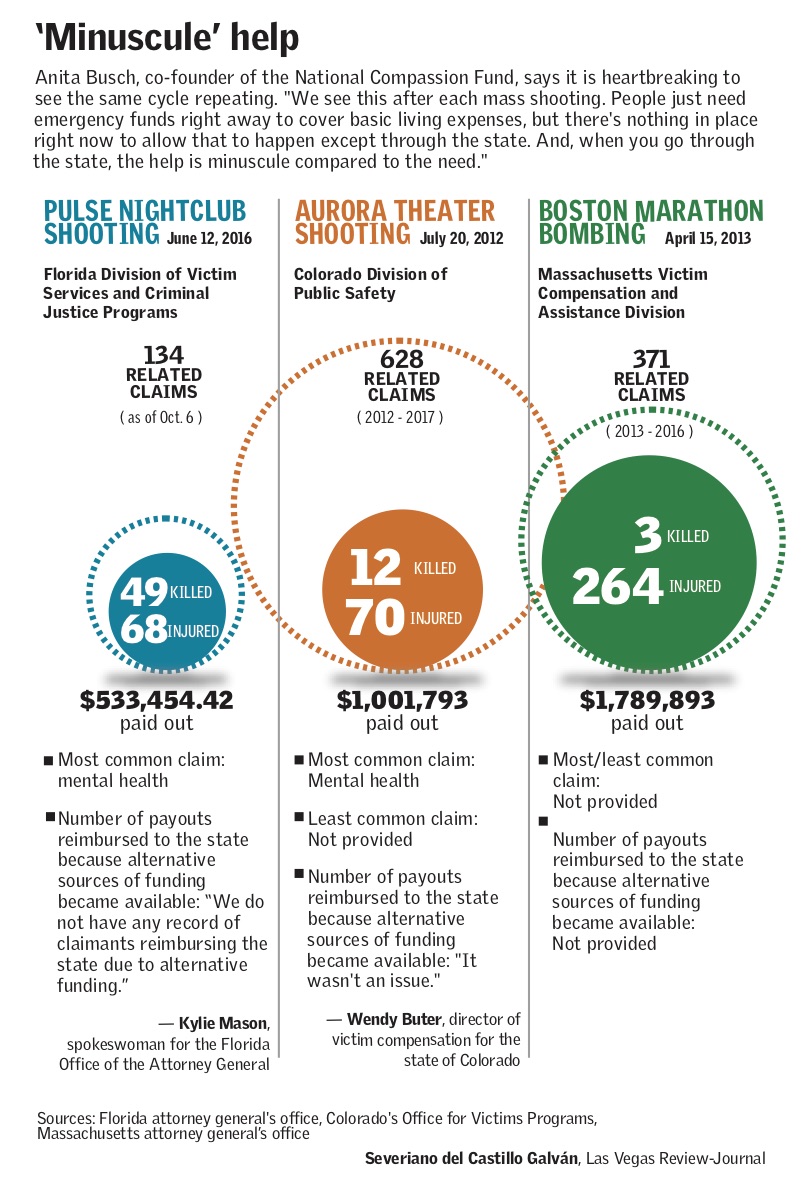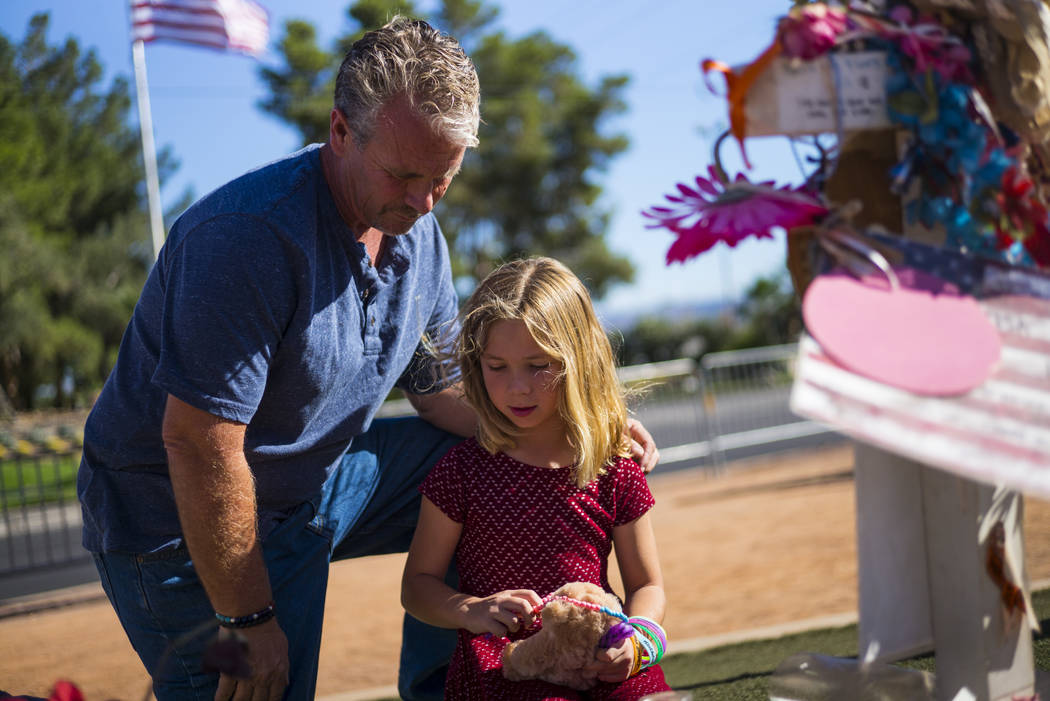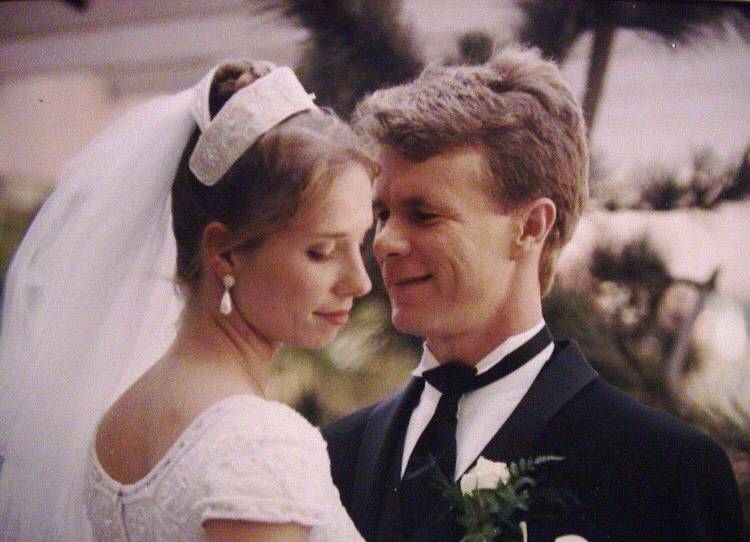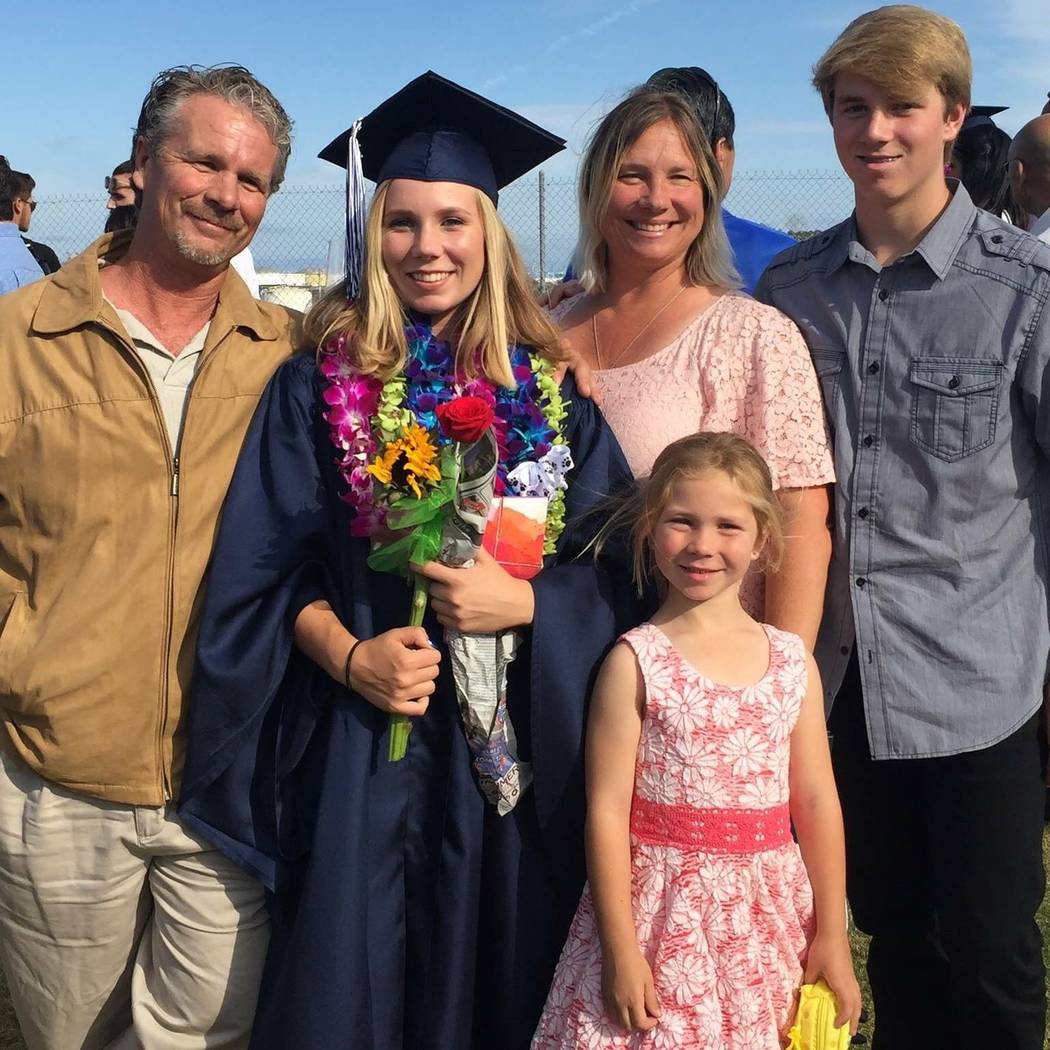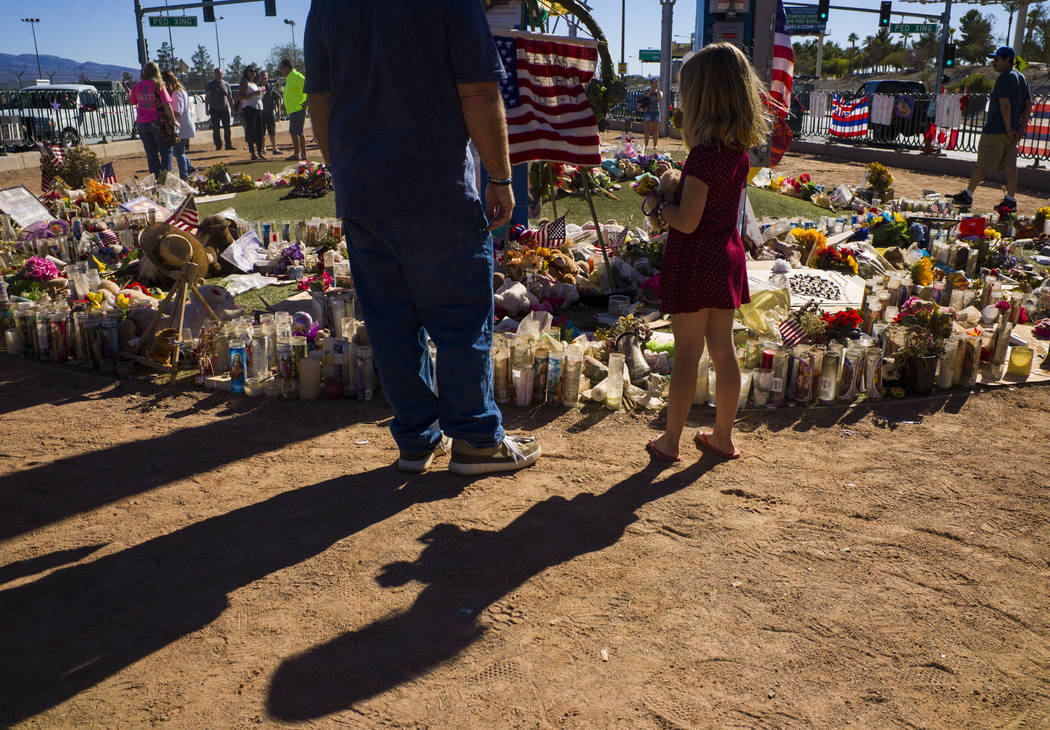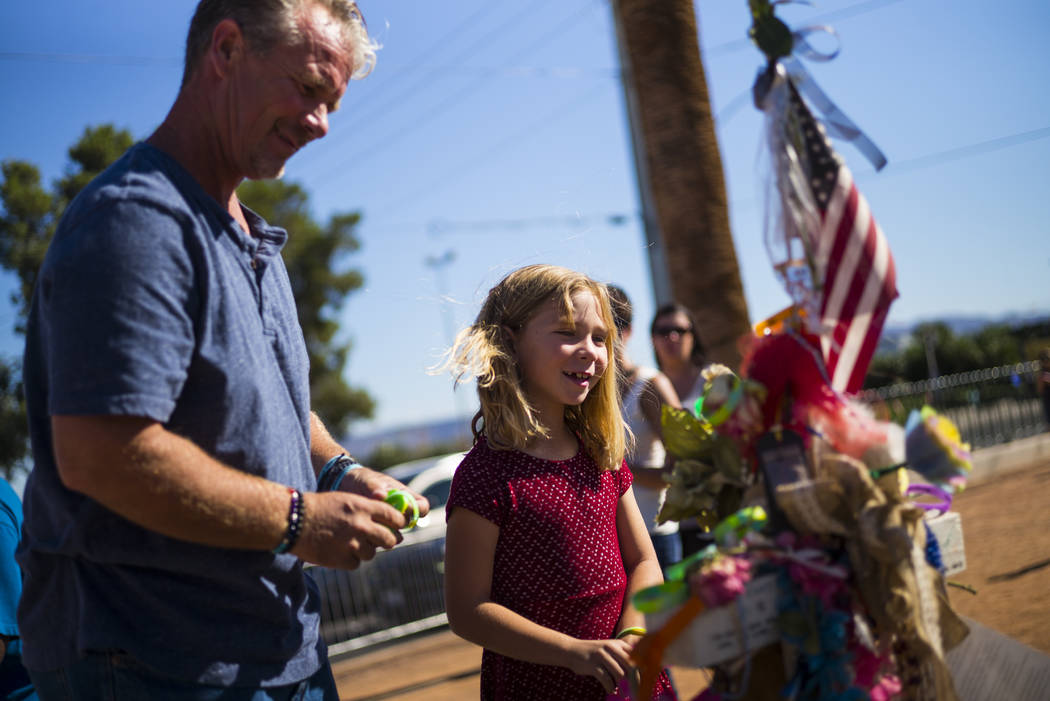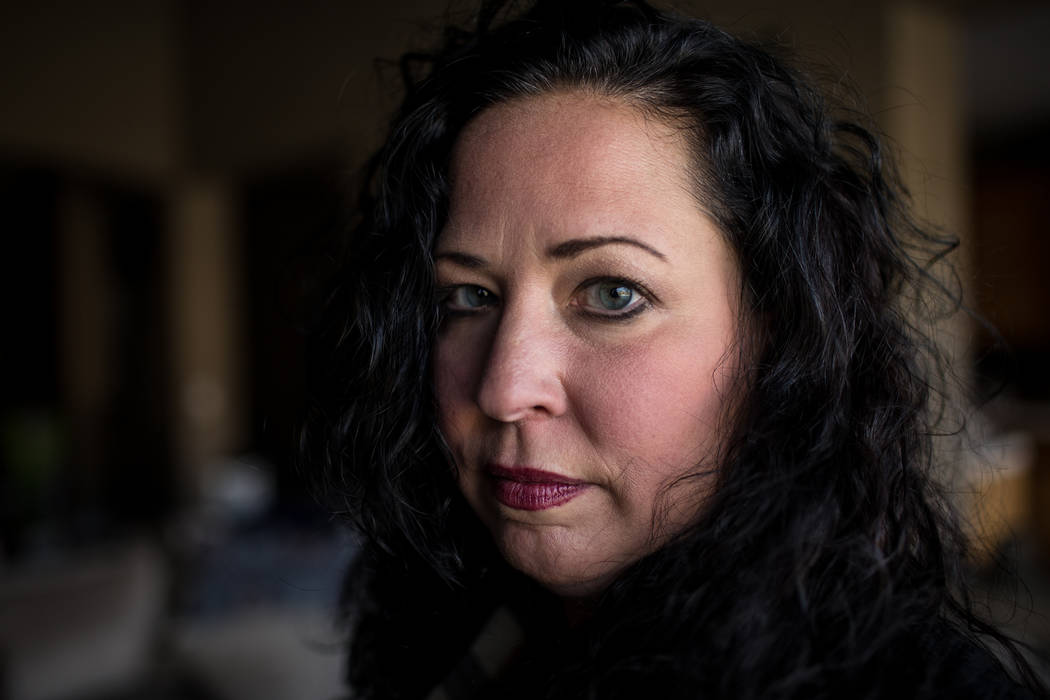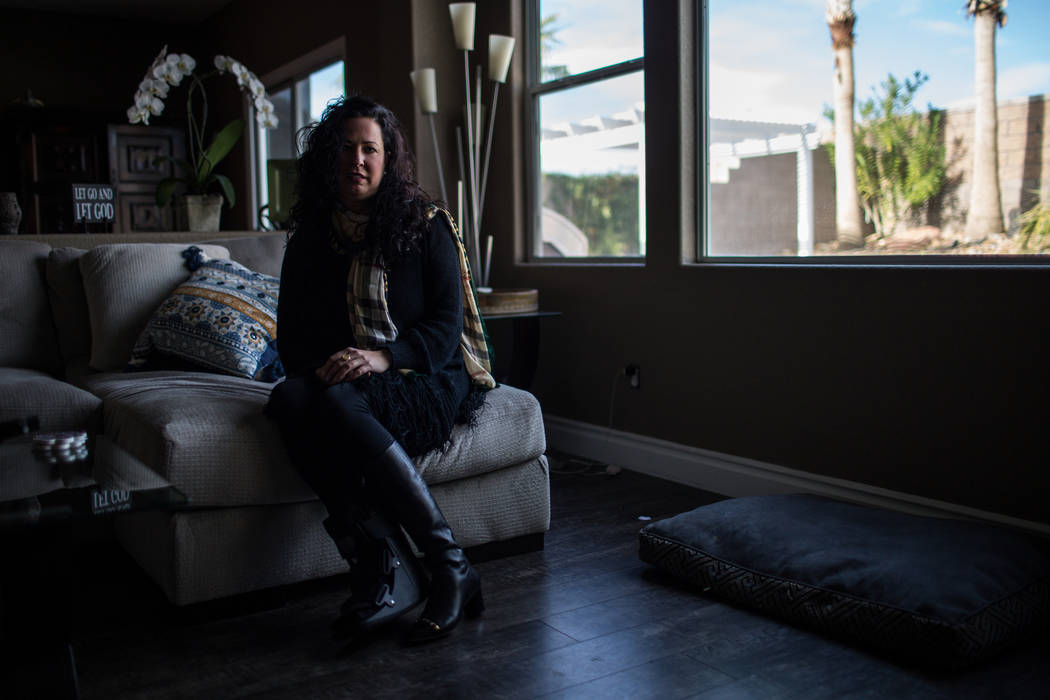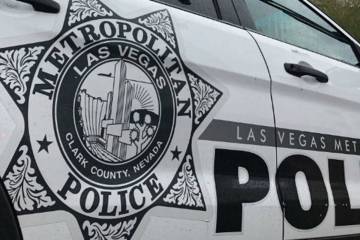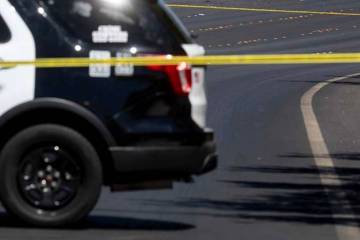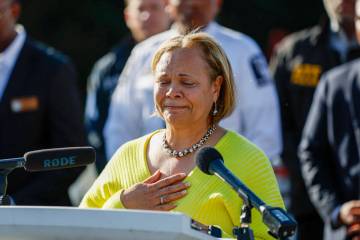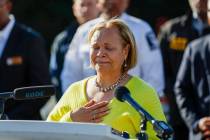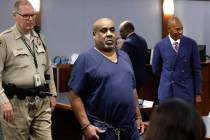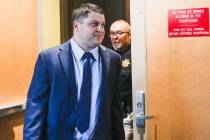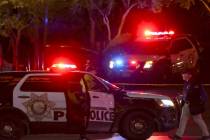Las Vegas shooting victims’ families struggle with financial aid
Lomita, California resident Bob Patterson lost his wife, Lisa, his best friend of 28 years and the mother of his three children, to the Las Vegas shooting.
“I am 53 and pretty much screwed, not just financially but all the way around, from my wife attending a country music concert,” Patterson said.
In the weeks following Oct. 1, Patterson was left to deal with unexpected financial expenses totaling $20,000 and counting.
Money came in from Zappos, in the form of a $12,132.29 check with his name on it, to help pay the mortuary.
Money totaling the same amount is also on its way to the mortuary from the California state Victim Compensation Board and the Nevada Victims of Crime Program. As a California resident, he is eligible for victim compensation from both states.
Now he said he has to decide what money to give back.
Double-dipping
Since Zappos as well as the California and Nevada victim compensation programs all paid for the same mortuary expense, he can’t legally keep the government money.
At the bottom of the application for the Nevada program, an applicant acknowledges his or her “legal obligation to repay the VOCP any money” if he or she receives any money for the same expense from any other source.
Patterson said he feels like he is in a “double jeopardy.”
“I’m already in the worst place I’ve ever been in my entire life, and to put me in a position to have to worry about whether I can accept funds or not is a really slippery slope,” he said.
Patterson said he’d like to keep the money, but worrying about double-dipping is another layer of stress he’d rather not deal with.
“I’d rather just go on with my life if that’s the way it’s going to be.”
Rebecca Salazar, program manager for the Nevada Victims of Crime Program, said the office usually only pursues action against double-dippers in the cases of restitution or subrogation, typically in cases of driving under the influence.
“Anybody (dealing with the aftermath of the Las Vegas shooting) having those kinds of issues should definitely reach out,” Salazar said, adding that she will work with people to see if the money can be applied toward a different expense.
‘Lied to’
Meanwhile, Henderson resident Lorisa Loy said she feels “very much lied to” by the Nevada program.
Loy, who attended the Route 91 Harvest festival Oct. 1, injured her ankle while helping countless others get to the hospital. She is due for surgery and won’t be able to go back to work for about three months.
Financially, the timing couldn’t have been worse.
Loy never considered herself somebody who lived paycheck to paycheck. She always had a rainy day fund. But weeks before the Las Vegas shooting that fund dried up between getting hit by an uninsured drunken driver and buying appliances for a house she had just moved into.
She said she prides herself on being able to take care of herself and her family on her own, and she reluctantly went to the Family Assistance Center to see what type of help is available.
“They said, ‘Don’t worry. We will help you, and everything is going to be OK,’ and I felt so much better,” she said. “But that help is only $350 a week.”
The money will help to cover her mortgage, but it leaves only $50 monthly for her other bills and food.
“I’m not looking to get rich. I just want to pay my bills. I have a car and a house and not even any credit card bills. I don’t live extravagantly. I just need to maintain my bills and credit,” she said.
Salazar said she understands the difficult position Loy is in, but “all I can do is to offer other resources. Our policies are our policies.”
“Other resources that may be available are the state welfare division, Clark County Social Services, any private disability insurance or agencies like Help of Southern Nevada or Catholic Charities,” Salazar said.
Salazar said she has reached out to Clark County Social Services only to learn there isn’t much help available for her there, either. A Social Services representative said the maximum a household of two, one adult and one minor, would be able to receive is a one-time per year payment of $535. Somebody who is eligible for that amount would not have any income, and if they had minor children they would need to have pending approval for the Temporary Assistance for Needy Families program.
‘Last resort’ fund
The Nevada Victims of Crime Program — like all other federally provided, state-managed victims funds — is a “payer of last resort.”
“This means that all existing resources a victim has must be utilized before the VOCP can pay any expenses. Existing resources include, but are not limited to, insurance, workers’ compensation, or civil suit settlements,” the program’s policy says.
The 58 victims of the Las Vegas shooting were from 14 U.S. states and two Canadian provinces. All other U.S. states’ crime victim compensation programs said they would not augment Nevada’s compensation program, except California, Pennsylvania and New Mexico. A representative for the victim compensation program in British Columbia, Canada, said it will not augment Nevada’s compensation program, and a representative of Alberta’s victim compensation program could not be reached for comment.
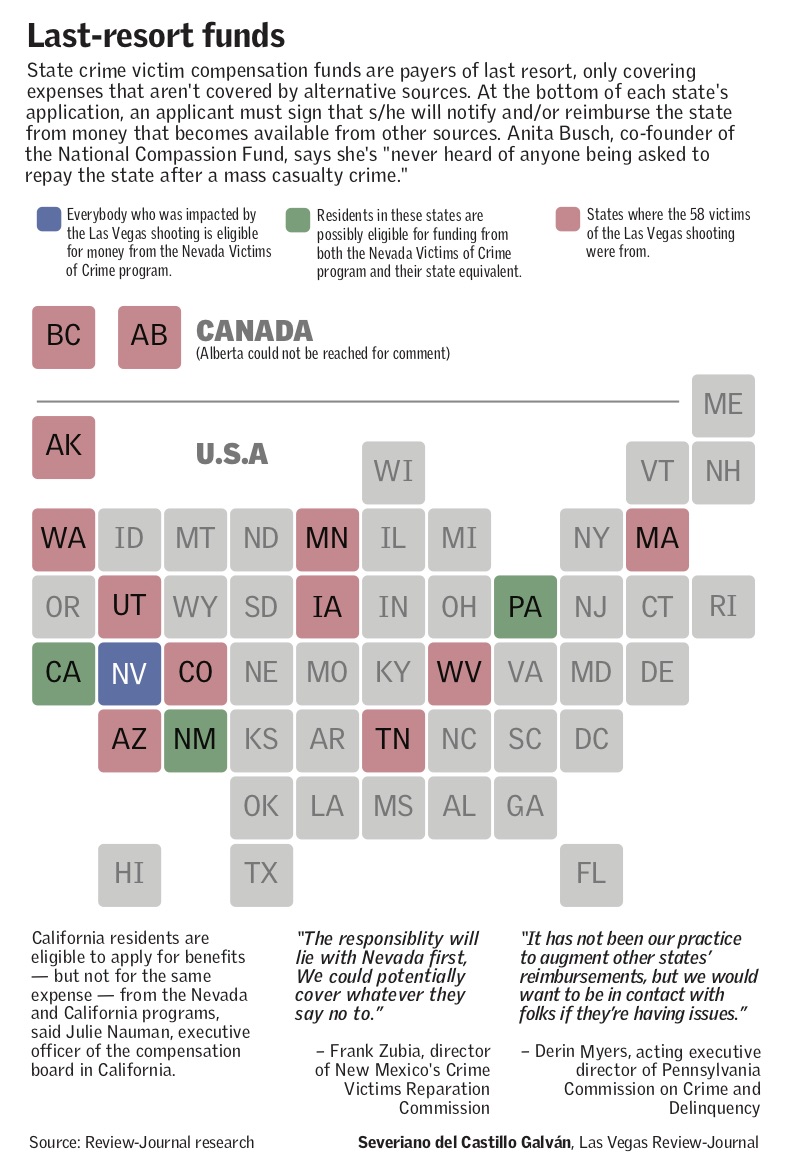
A waiting game
In the meantime, more than $15 million has been raised for victims and families of the Las Vegas shooting across three pools of money: a Las Vegas Victims’ Fund GoFundMe account; an account called the National Compassion Fund Las Vegas set up by the nonprofit National Center for Victims of Crime; and an account at Nevada State Bank set up by a group called the Las Vegas Victims Fund.
A 16-member committee of the Las Vegas Victims Fund is working to determine who is eligible to apply for the donations, how and in what time frame.
Jeff Dion, deputy executive director of the National Center for Victims of Crime, said he is working with Salazar and California to make sure people who get money from state programs will not be considered to be double-dipping if and when they receive money from the Las Vegas Victims Fund.
“We say that the money from the Compassion Fund (and Las Vegas Victims Fund) is a payment in acknowledgement of emotional loss, because that’s something that nobody else covers,” Dion said.
Contact Nicole Raz at nraz@reviewjournal.com or 702-380-4512. Follow @JournalistNikki on Twitter.
